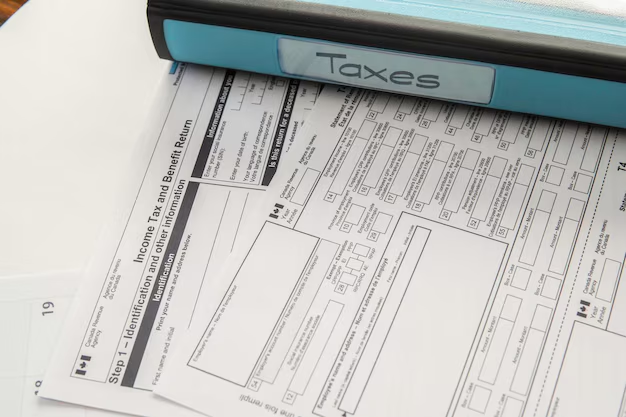Understanding Vermont's State Income Tax: What You Need to Know
When it comes to understanding state taxes in the U.S., it's essential to grasp how each state manages its taxation system. If you're living in or considering a move to Vermont, a common query might be, "Does Vermont have a state income tax?" In this article, we will explore Vermont's state income tax thoroughly, offering insights into its structure, rates, and the implications for residents.
Vermont's Income Tax System
First and foremost, the answer is yes, Vermont does impose a state income tax on its residents. Like many states, Vermont uses this tax to fund public services and infrastructure, from education to transportation. Here, we’ll delve into the details of how this tax system operates.
Key Features of Vermont's State Income Tax
Progressive Tax Rates: Vermont employs a progressive tax system, meaning the rate increases with higher income brackets. This approach aims to balance the tax burden relative to an individual's capacity to pay.
Taxable Income: Your Vermont state taxable income is calculated in a manner similar to federal tax returns, using adjusted gross income and allowable deductions.
Filing Requirements: Residents and non-residents with income sourced from Vermont are required to file a state tax return if their income exceeds a certain threshold.
Vermont Income Tax Brackets
Vermont's tax rates vary depending on income levels, with rates structured to be more equitable. Here's a simplified breakdown:
- Low-Income Bracket: Lower income earners pay less.
- Middle-Income Bracket: A moderate rate that accommodates average incomes.
- High-Income Bracket: Higher earners contribute more based on their ability to pay.
Example of Vermont Tax Rates
The following is a hypothetical representation for illustrative purposes:
- Up to $40,000: 3.35%
- $40,001 - $90,000: 6.6%
- $90,001 - $200,000: 7.6%
- $200,001 and above: 8.75%
These are indicative figures to show the layered structure of rates for different income brackets.
Considerations for Vermont Taxpayers
Deductions and Credits
To lighten the tax burden, Vermont offers several deductions and credits. Familiarize yourself with popular deductions such as those for education expenses, healthcare costs, and certain family obligations. Tax credits can include incentives for energy improvements and childcare expenses.
Filing Status and Its Impact
Choosing the correct filing status is vital and can influence your tax rates and deductions. Vermont aligns closely with federal designations, including single, married filing jointly, married filing separately, and head of household.
Tax Filing Process in Vermont
Ensuring accurate and timely filing is crucial. Vermont supports electronic filing, which can streamline the process and expedite any refunds due. Don't forget that resources are available, both via online tools and professional advisors, to assist in preparing your taxes.
How Vermont's Tax System Compares
Vermont's tax system is distinctive but shares similarities with other states. Many states employ a progressive tax system, though rates and brackets can vastly differ. It’s beneficial to understand Vermont’s approach in the broader context of state tax systems across the country.
Similarities with Other States
- Progressive Nature: Many states use a graduated income tax system.
- Deductions and Credits: Common across various states, with certain unique offerings.
Differences from Other States
- Rate Levels: Vermont’s rates are tailored to meet state revenue needs, which may be different from nearby states.
- State-specific Deductions: Some deductions unique to Vermont reflect local priorities, such as energy efficiency.
Planning Your Financial Strategy
Tax Planning Tips
📝 Essential Considerations:
- Understand Brackets: Recognize where your income falls within Vermont’s tax brackets.
- Leverage Deductions: Ensuring you utilize all available deductions can minimize your taxable income.
- Credit Utilization: Explore state-specific credits to reduce tax liabilities.
Retirement and Other Long-term Planning
Tax planning extends beyond yearly obligations. Consideration of long-term objectives, retirement, and estate planning can also be influenced by state tax structures. Seeking advice from financial planners can offer strategic insights that align with Vermont’s unique regulations.
Living in Vermont: What to Expect
Overall, Vermont offers a blend of rural charm and urban conveniences, with policies shaped to maintain a sustainable community. While it imposes an income tax, its rates are balanced by quality public services and a commitment to societal well-being.
Benefits of Paying Vermont Taxes
- Robust Public Services: Support for quality education, healthcare, and infrastructure.
- Environmental Stewardship: Funding for initiatives focused on sustainability.
Vermont's Fiscal Responsibility
The state is known for its careful fiscal management, ensuring that tax revenues are used effectively to enhance the community's quality of life. This prudent approach helps maintain Vermont's reputation as a desirable place to live and work.
Summary of Vermont's Income Tax System
Here's a quick recap to navigate Vermont’s income tax easily:
📌 Key Takeaways:
- State Income Tax Exists: Vermont does levy a state income tax with progressive rates.
- Brackets and Rates: Steeper rates for higher incomes, aimed at equitable distribution.
- Deductions and Credits Available: Utilize fully to optimize taxes owed.
- Electronic Filing Options: Simplifies the process for timely submissions and refunds.
- Comparison to Other States: Similar yet distinct to accommodate Vermont's fiscal goals.
With careful planning and understanding, navigating Vermont's state income tax is straightforward, empowering residents to meet their tax obligations effectively while taking full advantage of available benefits. By equipping yourself with knowledge and resources, you can manage your fiscal responsibilities confidently, ensuring compliance and maximizing potential returns.

Related Topics
- Are State Income Tax Refunds Taxable
- Are State Tax Refunds Taxable Income
- Can Business Deductions Reduce Your State Personal Income Tax
- Do I Have To File State Income Tax
- Do You Get State Income Tax Back
- Do You Pay Georgia State Income Tax On Qualified Dividends
- Do You Pay State Income Tax On Qualified Dividends
- Does Al Have State Income Tax
- Does Alabama Have a State Income Tax
- Does Alabama Have State Income Tax
